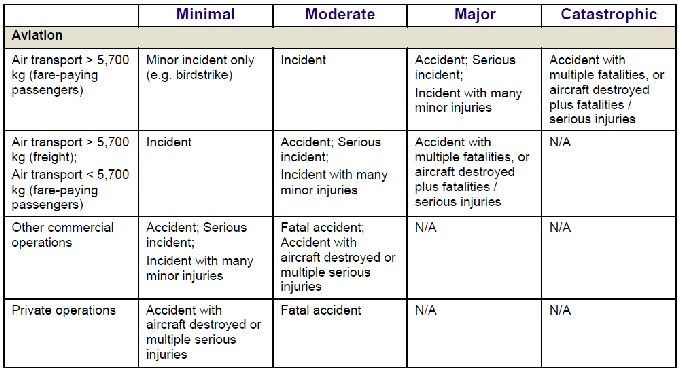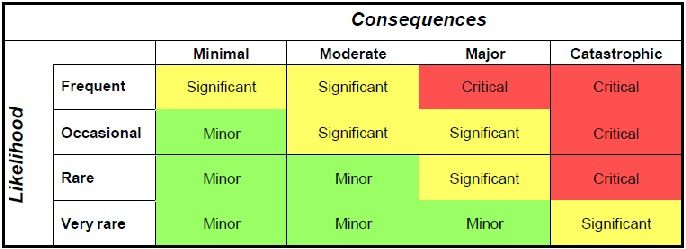Senate PelAir report recommendations 2&3
Recommendations 2&3 deal with the ‘ATSB accident investigation processes’ including an extraordinary risk matrix that was commented on by the committee….
….“The ATSB's response notwithstanding, the committee remains concerned by the fact that the highest consequence the ATSB would attribute to the safety issues for those involved with emergency medical flights—in this particular case the patient, her family, the medical staff and flight crew—is 'moderate'. This would be the case even if all six on board had died in the accident”

 There was also reference to an old chestnut CAR206…“It is important to note that current regulations include 'ambulance functions' under the category of 'aerial work', as outlined in Civil Aviation Regulation (CAR) 206. CAR 206 sets out what is referred to as the "classification of operations" and establishes three broad classes of commercial aviation: aerial work, charter and regular public transport (RPT).”
There was also reference to an old chestnut CAR206…“It is important to note that current regulations include 'ambulance functions' under the category of 'aerial work', as outlined in Civil Aviation Regulation (CAR) 206. CAR 206 sets out what is referred to as the "classification of operations" and establishes three broad classes of commercial aviation: aerial work, charter and regular public transport (RPT).”
So R2 and R3 again from Phelan’s article:
2.The committee recommends that the minister, in issuing a new statement of expectations to the ATSB, valid from 1 July 2013, make it clear that safety in aviation operations involving passengers (fare paying or those with no control over the flight they are on, e.g. air ambulance) is to be accorded equal priority irrespective of flight classifications.
The issue has received scant attention over many years, because current regulation fails to provide equivalent regulatory protection for a huge variety of air passengers who are not protected by current airline regulation. They range from corporate executives, to fly-in-fly-out resource workers, to medevac and air rescue passengers, to police officers and prisoners (some not yet convicted.)
3.The committee recommends that the ATSB move away from its current approach of forecasting the probability of future events and focus on the analysis of factors which allowed the accident under investigation to occur. This would enable the industry to identify, assess and implement lessons relevant to their own operations.
The ATSB and CASA have long been criticised on this issue. Proactive ATSB research and CASA safety education programs/publications appear to have an aversion for discussing current domestic air safety issues.
 PAIN R1-R3
PAIN R1-R3
Last edited by Sarcs; 17th Jun 2013 at 21:22.